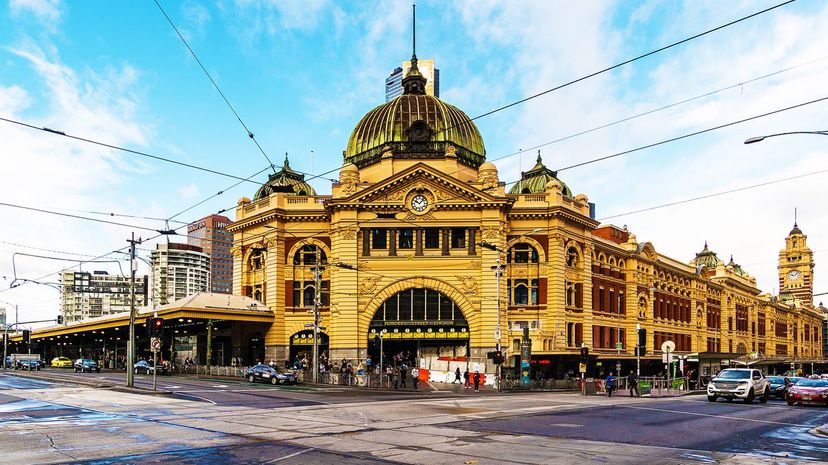
About This Quiz
From Hugh Jackman and Nicole Kidman to Liam and Chris Hemsworth, there's no doubt that Australia - the sixth biggest country in the world - has blessed the world with an abundance of talent. But even more impressive is the vast array of natural wonders and wide-open spaces that the country's 24.6 million inhabitants get to enjoy. And comprising this natural beauty, six states make up the "bush" country of Australia: New South Wales, Victoria, Queensland, Western Australia, South Australia and Tasmania.
Additionally, there are 10 territories - three of these are considered internal territories, while the remaining seven are considered external. The internal territories are the Australian Capital Territory, the Northern Territory and Jervis Bay Territory, while the external territories are Ashmore and Cartier Islands, Christmas Island, the Cocos Islands, the Coral Sea Islands, the Australian Antarctic Territory, Norfolk Island and the Territory of the Head and McDonald Islands.
Each state and territory is as expansive and wondrous as the next, which begs the question: How well do you know your Australian states and territories? Venture into this quiz and find out for yourself! But we warned - you might end up buying a one-way ticket once you're done.
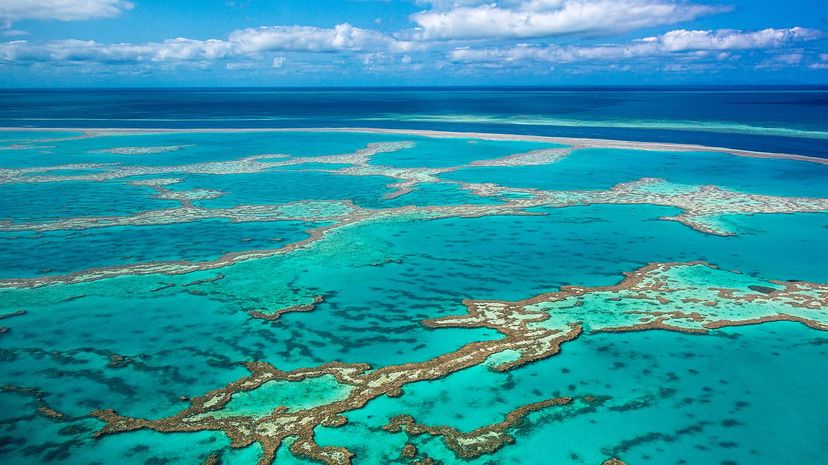
One of the seven natural wonders of the world, the Great Barrier Reef generates between up to 6 billion Australian dollars a year in tourism. Supporting a wide diversity of living creatures from as far back as 20 million years (yes, million), the reef is home to over 2,000 different species of birds and animals. It's a favorite among tourists, and it's a sight to behold.
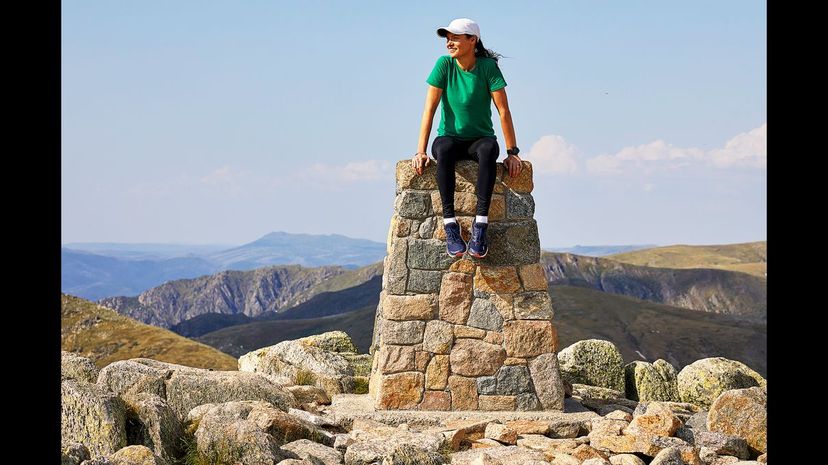
To help the 100,000 climbers who visit Mount Kosciuszko ever year, Australia built a public toilet at 6,900 feet high. It helps with climbing the last 300 feet! If you want to fit in with the locals, call the mountain "Kozzy."
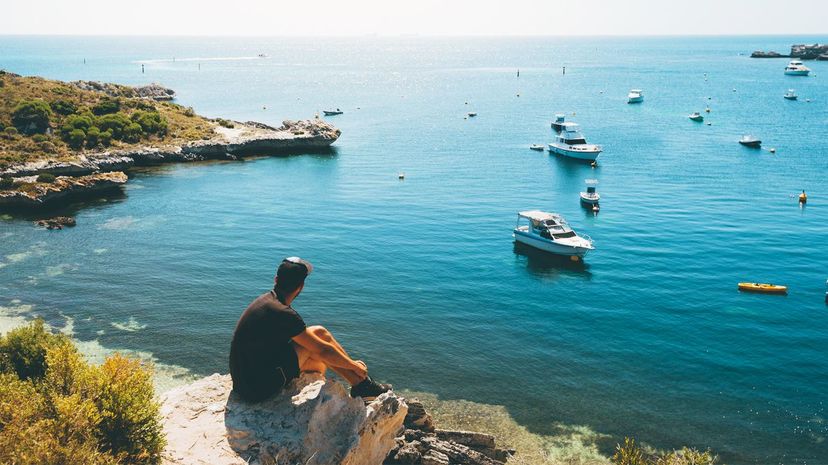
Western Australia occupies the country's western third, covering about 975 thousand square miles. Most of the state's 2.6 million residents live in or near Perth, a city known for Rottnest Island. The island has no shortage of alluring attractions, including Wadjemup Bidi, walking trails that let you explore inland lakes, headlands and other beautiful sights.
Advertisement
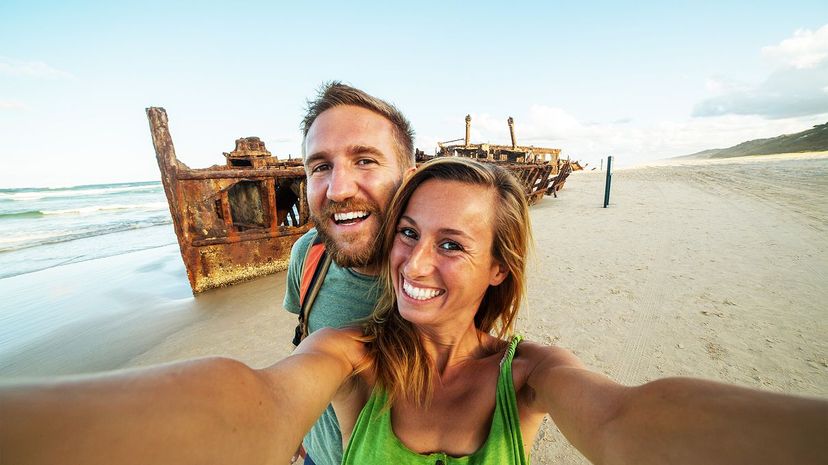
Comprised of sand that has been accruing for almost 750,000 years, Fraser Island contains criminally amazing panoramic views, lush rainforests and rich diversity of fauna. It's one of the most unique and unusual places on Earth.
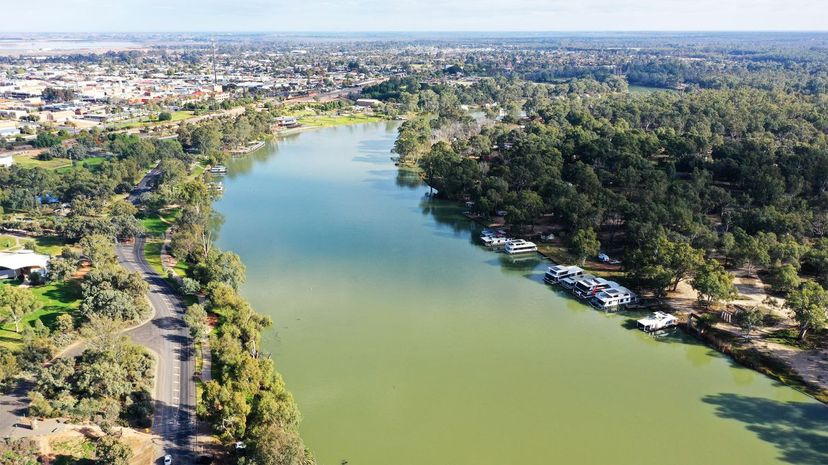
The Murray River the longest river in Australia at 2,508 kilometers in length. Beyond its natural beauty, the Murray also has several practical uses - its banks contain a whopping 37 golf courses, and it's also home to the world's biggest canoe race.
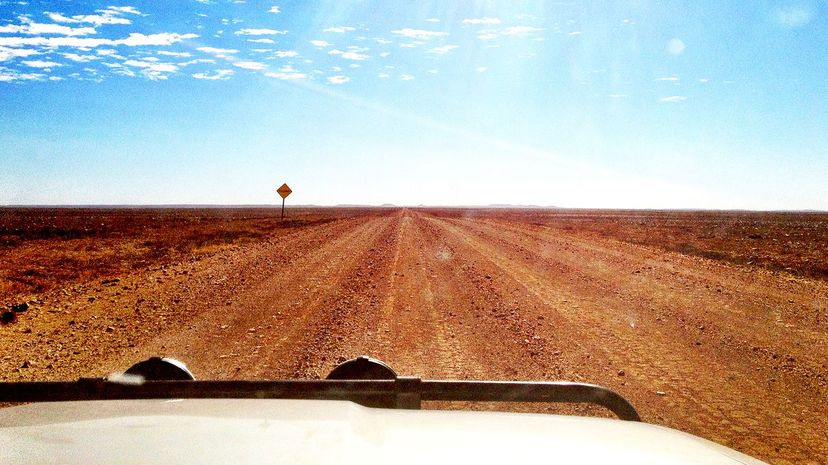
The hottest temperature ever recorded in Australia happened in the small, remote outback town of Oodnadatta, which is in South Australia. Oodnadatta features the Oodnadatta Track, an outback track popular among first-time bush campers and a solid traffic alternative to the Stuart Highway.
Advertisement
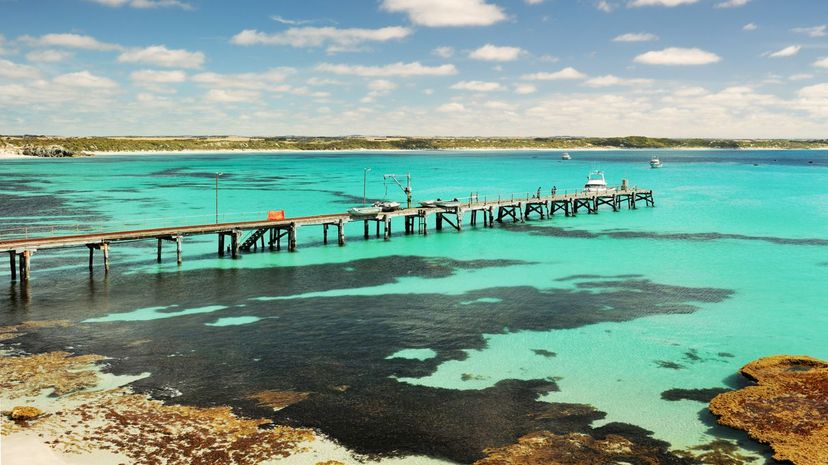
Kangaroo Island has a coastline spanning 509 kilometers, where bushland, lobster fisheries and gorgeous beaches make their homes. Kangaroo Island is known for its small, tight-knit community, and much of the economy comes from the agriculture industry as well as art. About 10% of Kangaroo Island's residents sell art, according to some estimations.
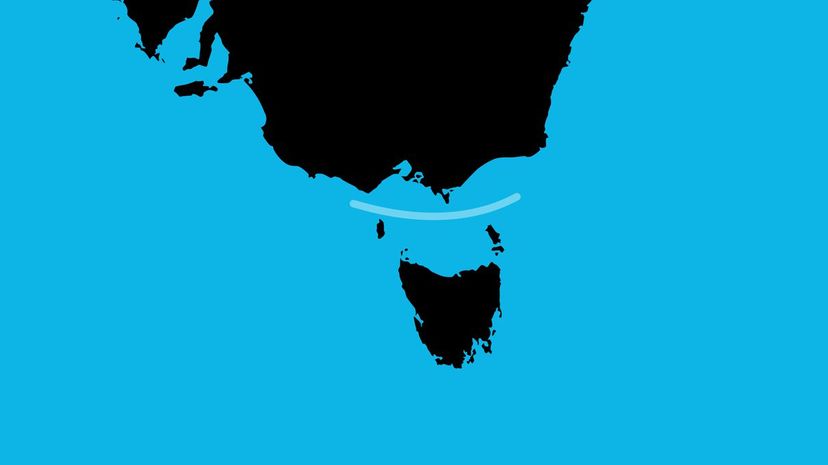
Bass Strait separates Tasmania from Australia, notably Victoria, and is known for a somewhat mysterious UFO incident. A man by the name of Frederick Valentich was flying a small airplane when he saw a strange object buzzing about his plane. The airport personnel he was in contact with then heard some scraping noise, and Valentich and his plane subsequently vanished and were never seen again.
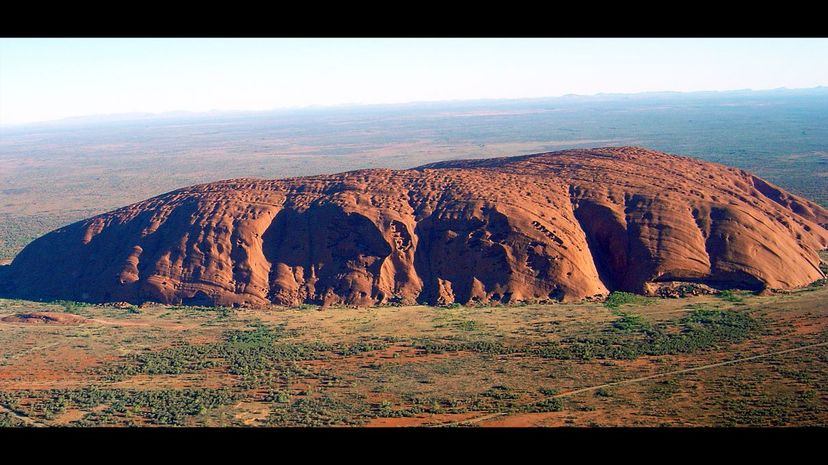
The Northern Territory (often referred to as "NT") aptly occupies the most northern portion of Australia - hence the name! Home to hundreds of Aboriginal languages, the territory is probably best known for Uluru, a single massive formation made of sandstone, and The Olgas, an arrangement of rock domes.
Advertisement
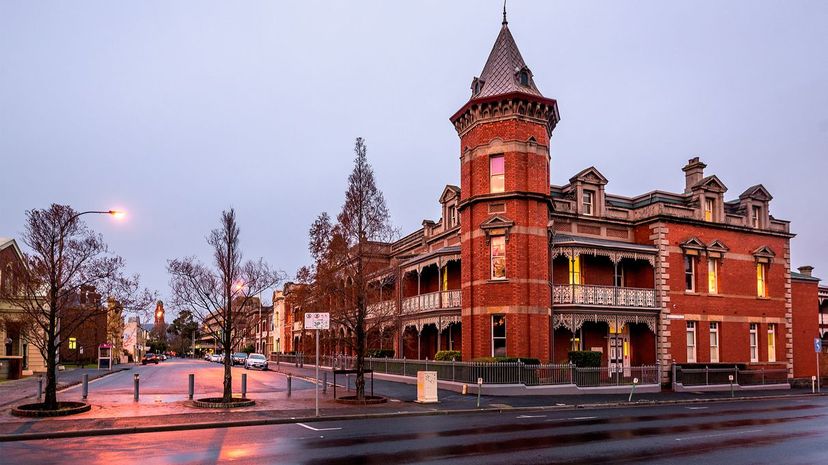
If you ever visit Launceston (Tasmania's second-biggest city, after Hobart), make sure you check out Cataract Gorge Reserve, a gorgeous natural wonder full of photogenic greenery. You should also visit the Port of Launceston, even though it's rarely used nowadays. Launceston is still known as a historic city, as it was one of the first places settled by the Europeans.
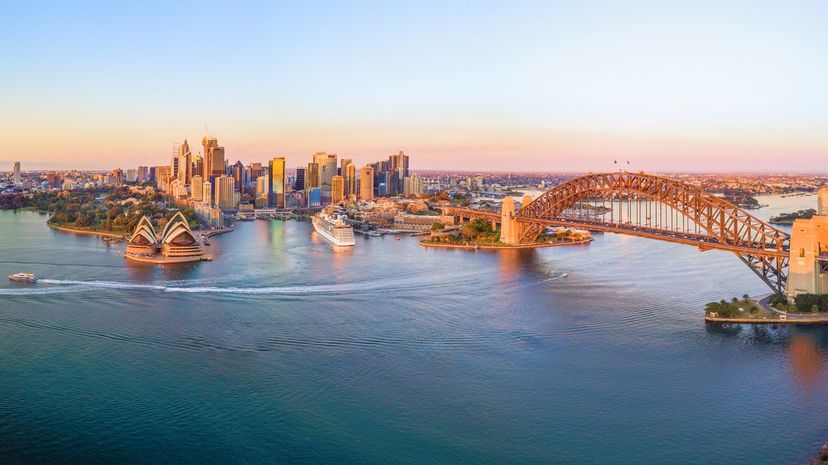
According to the New South Wales government, Sydney welcomed 11.1 million domestic overnight tourists in 2018, with visitors staying a total of 29.6 million nights. Considering all the attractions, including the iconic Opera House and the Harbour Bridge, it's no wonder that tourists are flocking to the city.
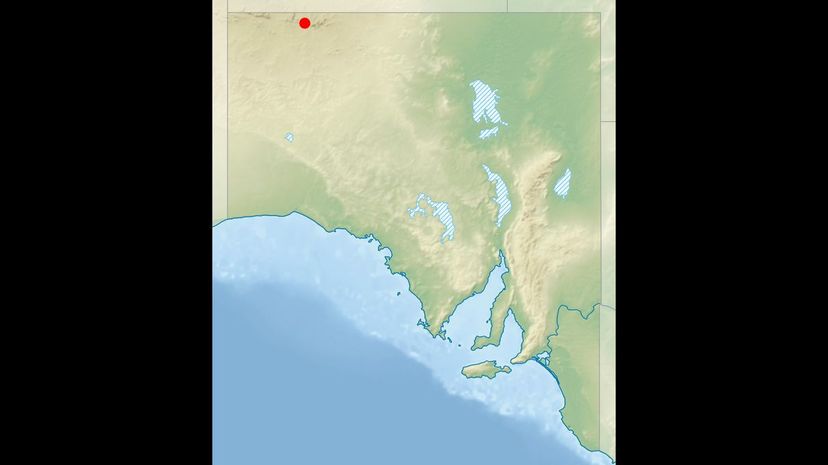
This is kind of a trick question because Mount Woodroffe isn't actually a city, it's the highest peak in South Australia. Access is limited because visitors are required to pass through Anangu Pitjantjatjara lands, which can only be visited if you are an Anangu person or have a permit.
Advertisement
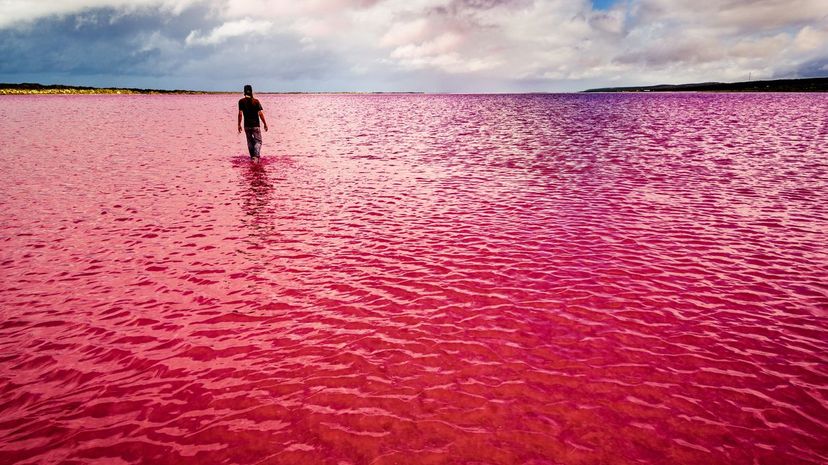
With so much space, it's no wonder that Western Australia boasts so many attractions. If planning a trip, make sure you stop by Hutt Lagoon, a natural wonder that literally changes colors and has been seen in lilac, pink and others. It's also free to access, no less.
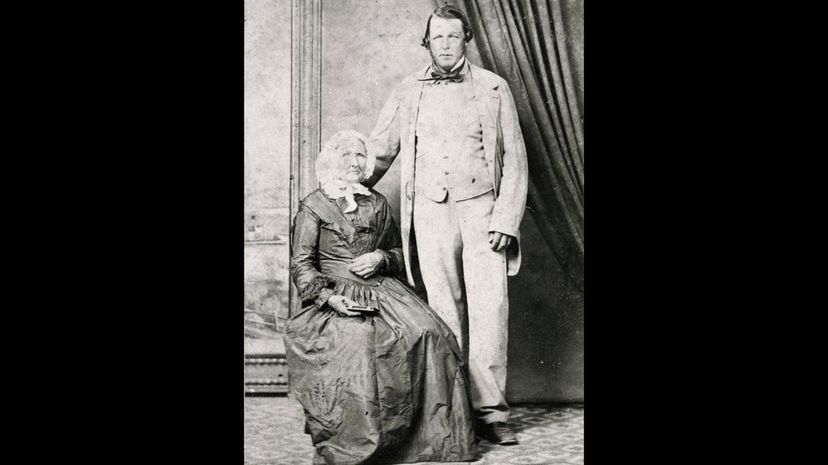
Granny Smith apples got their name from Maria Ann Smith, an orchardist who cultivated the apples accidentally from an unintentional seeding. After her death, local orchardists bought part of her farm and discovered the apples in her compost, naming the apple in her honor.
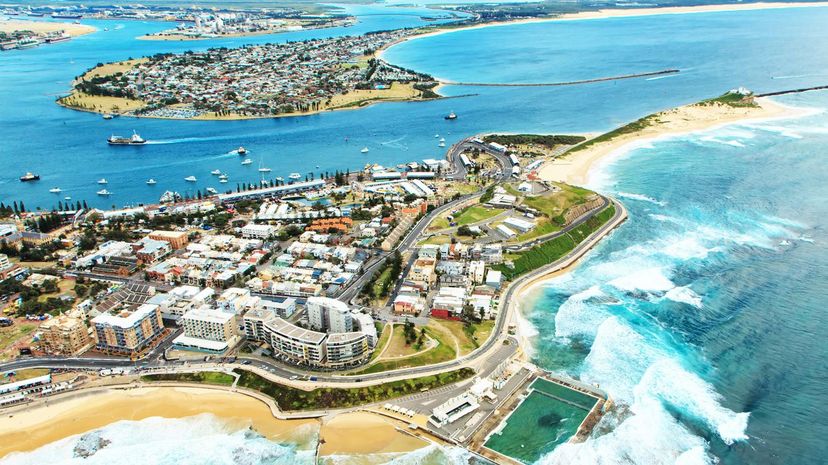
Founded in 1797, Newcastle is not only the second-most populous city in New South Wales, but it's also the second oldest. There are six beaches within a five-minute drive, which might explain why four-time surfing champion Mark Richards hails from there.
Advertisement
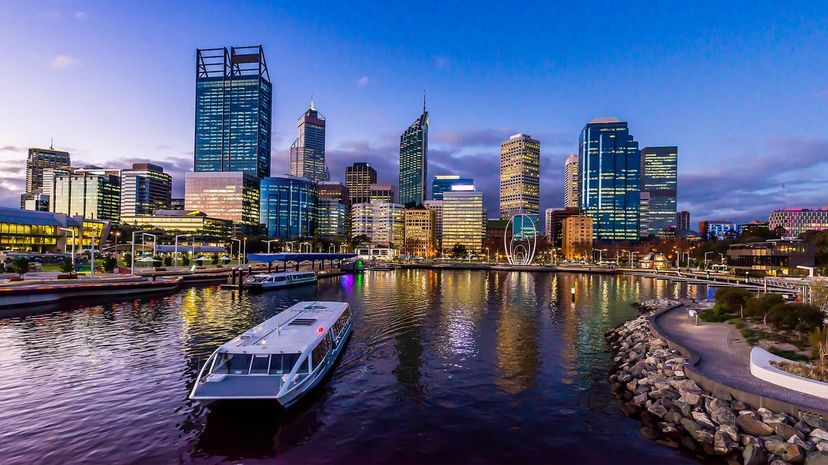
Perth is renowned for being one of the sunniest places in the world, enjoying an average daily dose of about 8 hours of sunshine. Per capita, more self-made millionaires call Perth home than anywhere else in the world.
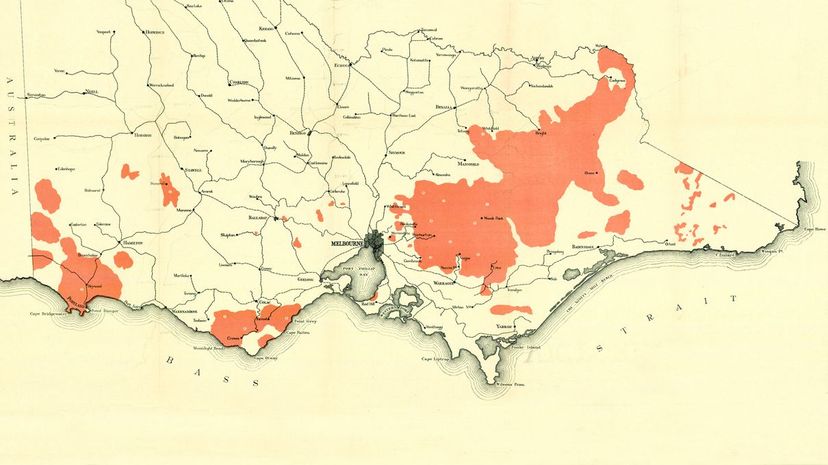
Considered one of the most severe bushfires in history, the Black Friday disaster on January 13, 1939, killed 71 people and incinerated more than 4,000 buildings. This caused the Australian Royal Commission, which was born out of the disaster, to implement changes in forest management.
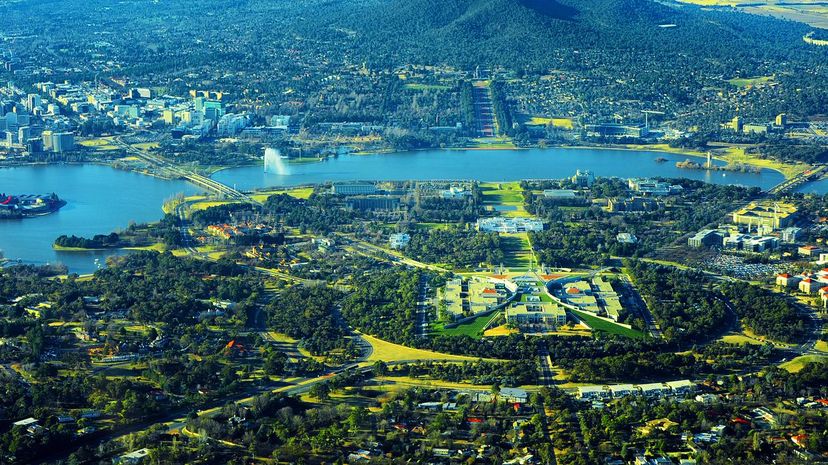
Canberra is the capital, but it's also the biggest inland city in Australia, not to mention the eight most populous city. Its nickname is Bush Capital, and residents are referred to as "Canberrans." The name is derived from a word of an extinct language, and it translates to "meeting place."
Advertisement
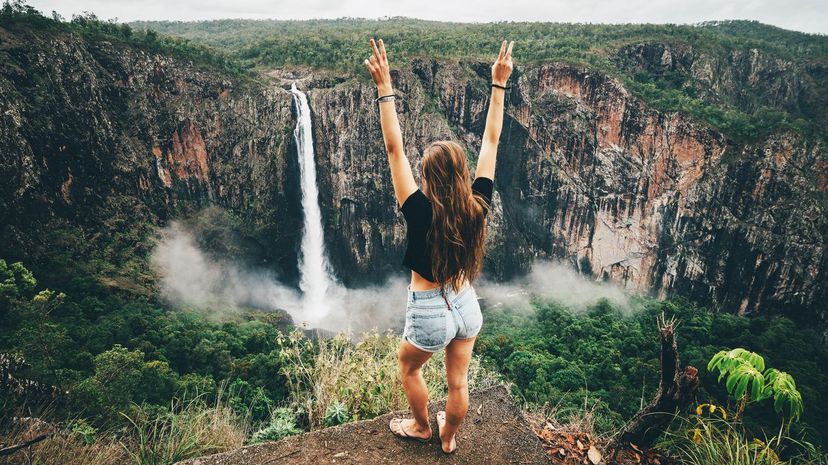
The Wallaman Falls has a drop of 879 feet, with the pool at the bottom of the waterfall measuring 66 feet in depth. One hundred thousand people visit the Falls every year, mostly to camp in the surrounding area, but you can swim at the bottom of the falls if you so wish.
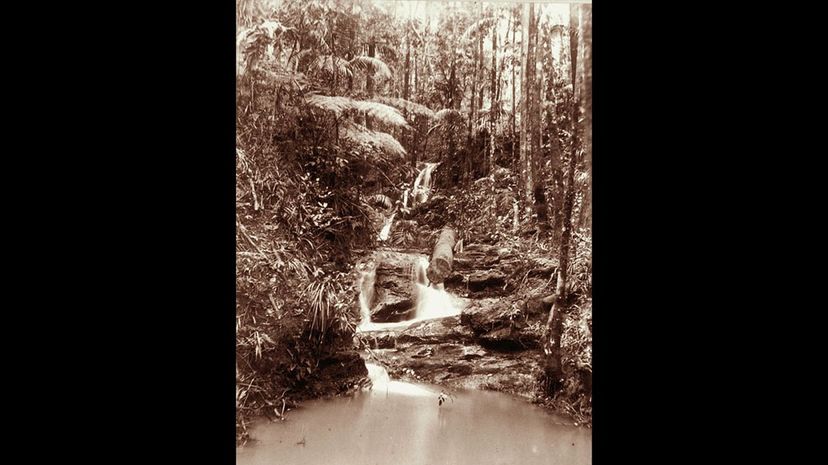
No less than 907 millimeters of rain fell upon Crohamhurst on a single day in 1893. A cyclone was passing through, which was the reason for the rainfall, though Crohamhurst is known to be pretty wet as it is. A natural waterfall in a Crohamhurst creek is shown here in 1984.
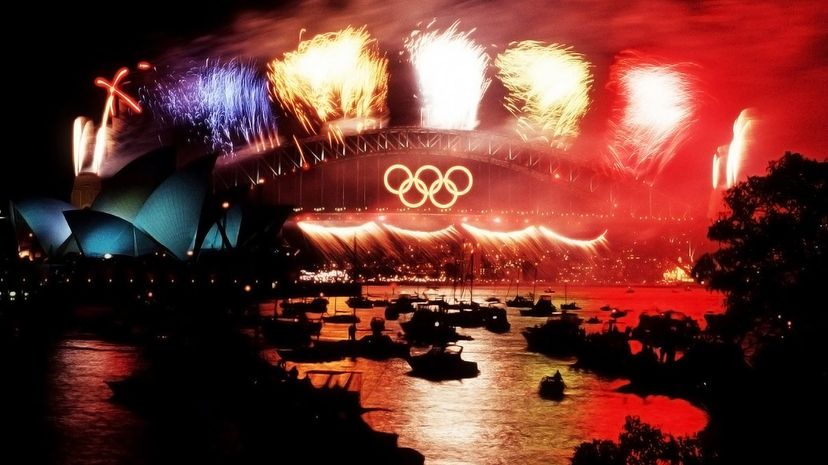
Sydney was the host for the 2000 Summer Olympics, which saw Australia rank fourth in terms of medals, with a grand total of 58 â - 16 of which were gold. The closing flag-bearer of the 2000 Olympics was now-retired swimmer Ian Thorpe.
Advertisement
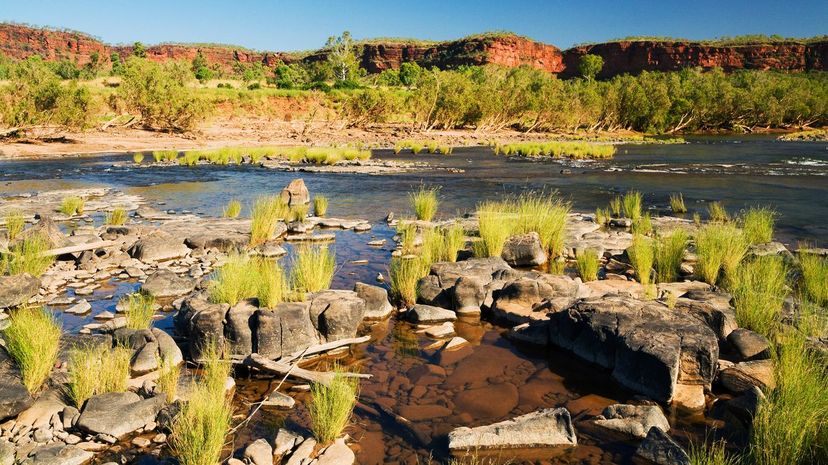
Discovered in 1819 and boasting a length of 560 kilometers, the Victoria River passes through Gregory National Park, which is known for its woodlands and gorges, among others. It's common for locals to call it "The Vic."
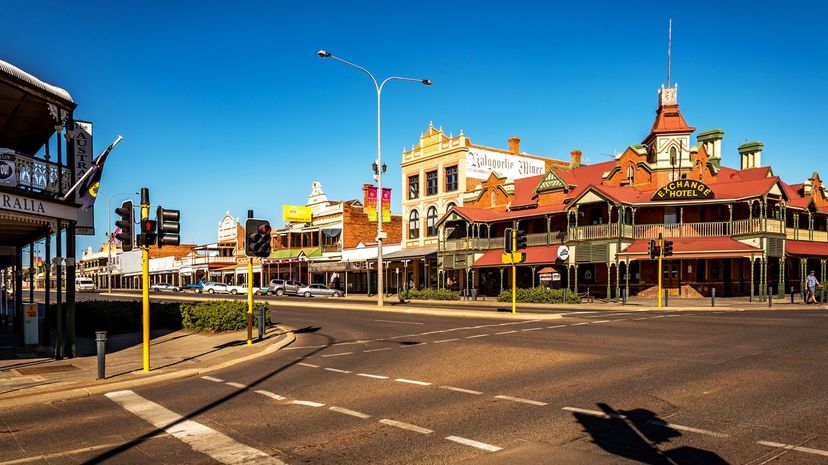
Australia's largest electorate is in Kalgoorlie-Boulder, which is in Western Australia. It's the largest because the district encompasses the town of Kalgoorlie and surrounding areas in Western Australia's outback.
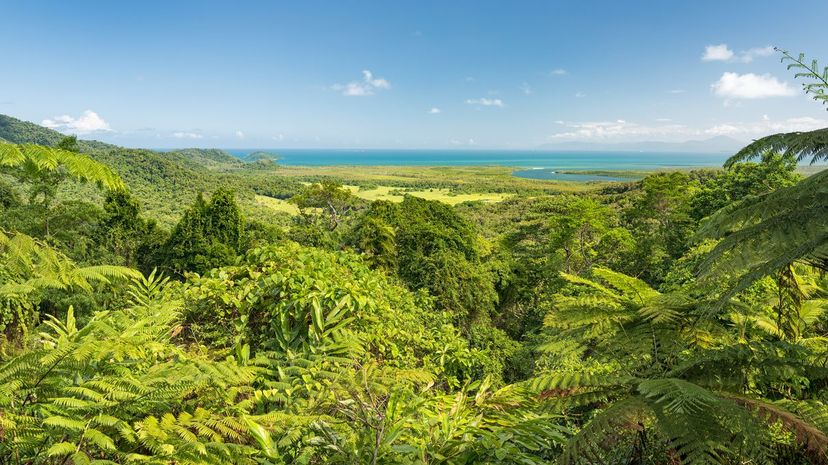
With estimations that it's 180 million (yes, million) years old, the Daintree is the oldest rainforest on earth â - as if its abundant biodiversity weren't already impressive. This rainforest is so precious that it was registered as a World Heritage Site in 1988.
Advertisement
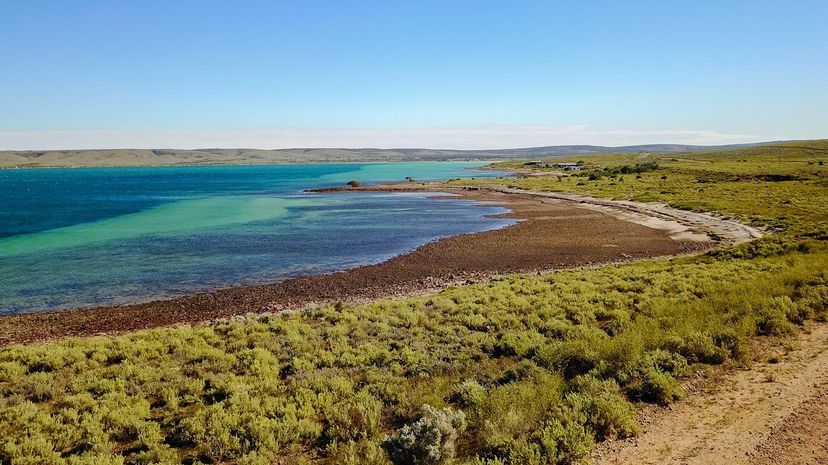
Featuring five marine parks and three important bird areas, Spencer Park is a great example of Australia's abundant nature and biodiversity. Fishing is forbidden in Sanctuary Zones to protect ocean life.
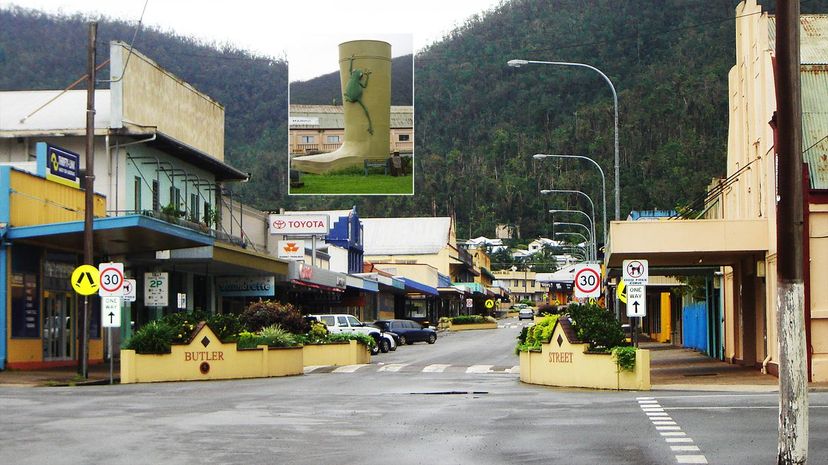
An average rainfall of 11 feet, 10 inches, descends onto Tully each year. Australia's annual rainfall record is 7.9 meters, which occurred in 1950, and Tully has an iconic Golden Gumboot to represent this. As you could probably guess, whitewater rafting is a popular tourist attraction.
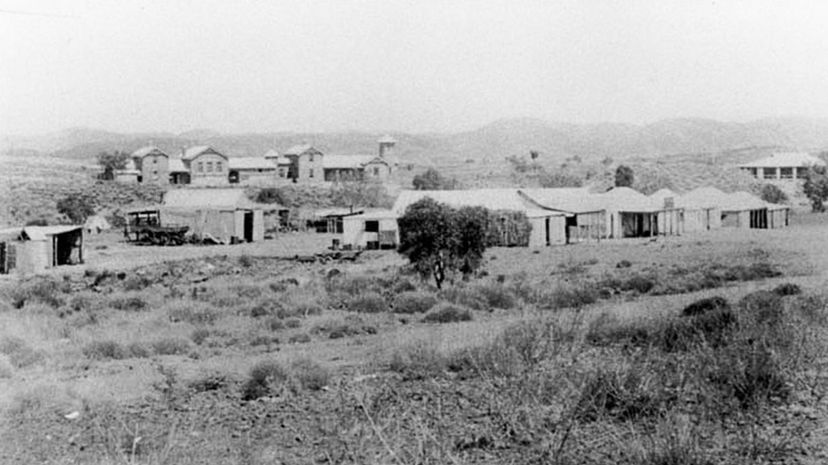
With a population of 175 people, Marble Bar is located in Western Australia's Pilbara region. What's crazy is that locals have gotten so used to the heat that many don't even have any air conditioning. Talk about melting under the heat while waiting for your beer. Marble Bar is shown here in 1898.
Advertisement
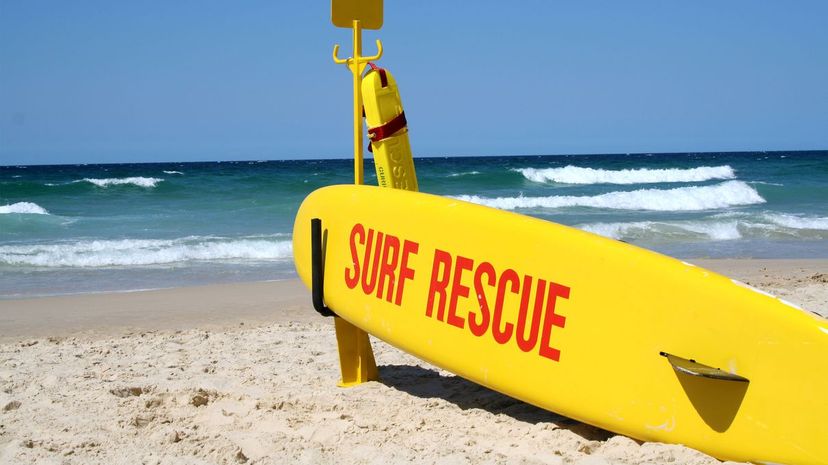
The heart can seize and stop beating if even a small amount of venom is ingested or injected into the body. Box jellyfish, in particular, are scary because they swim quickly, unlike most jellyfish, and anecdotal evidence points to some 20 to 40 deaths caused by box jellyfish every day.
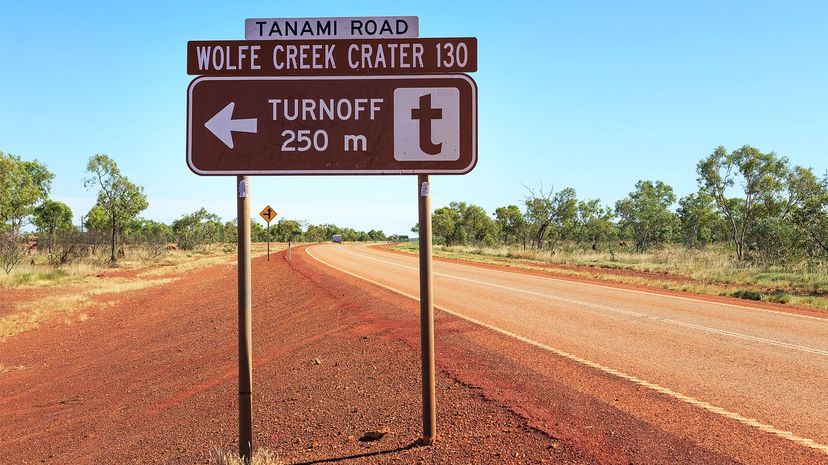
Wolfe Creek, in Western Australia, is where the largest meteorite crater in Australia lies. It's deduced that the meteor that hit Wolfe Creek was about 2,800 feet in diameter, causing a crater 200 feet deep from the rim to the crater floor. Experts also think that the meteorite hit a little less than 300,000 years ago and had a mass of approximately 50,000 tonnes.
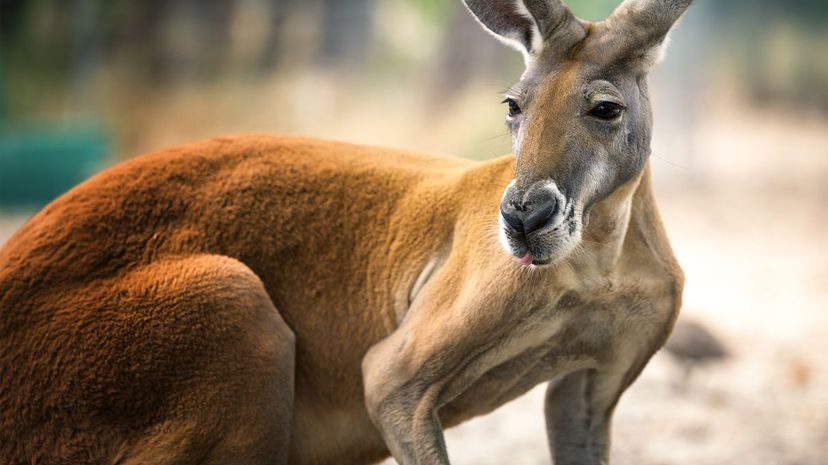
There are four different species of kangaroo in Australia, with the Red Kangaroo, shown here, being the largest. The largest Big Red ever seen was recorded to be 6 feet, 9 inches tall. Still not taller than Shaquille O'Neal.
Advertisement
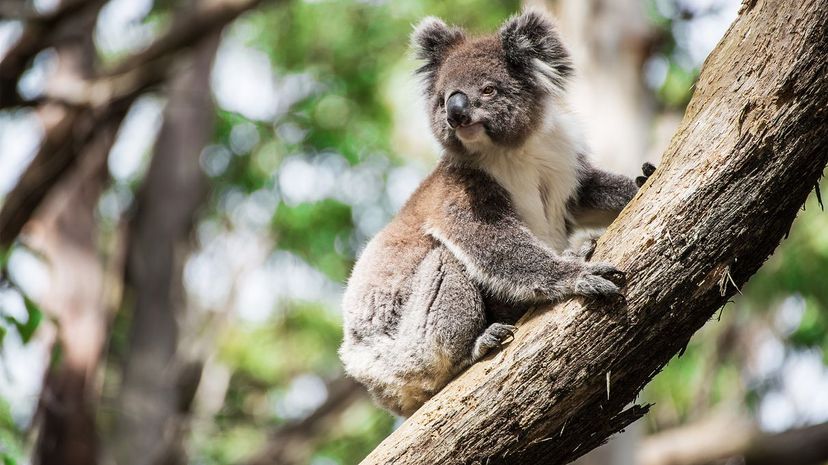
Brisbane Ranges National Park is a national park a little way outside of Melbourne. It's mostly popular for its camping grounds and hiking routes, which are accessible for people of all kinds of fitness levels. You can also catch a koala or two snoozing around while on your trail!
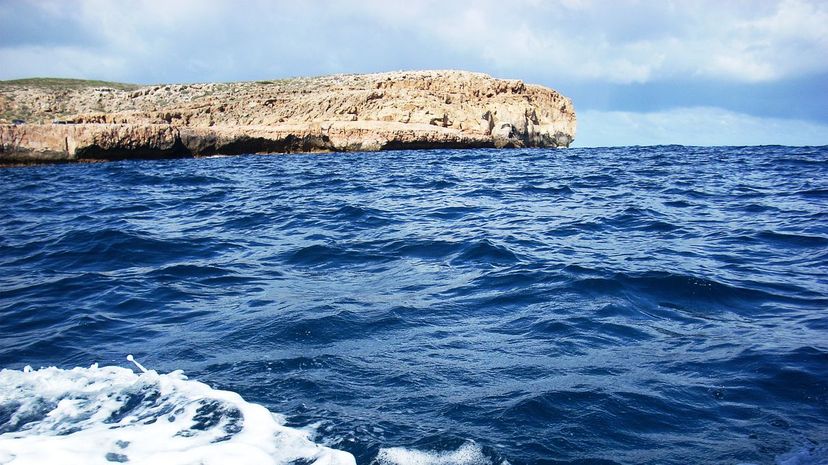
Steep Point is mainland Australia's most western point, and it's the furthest you can travel on foot towards the sunset. It's known for its abundant marine life and is Australia's most renowned land-based game fishing places, with over 320 different species of fish swimming around. If you want to get there, though, you'll need a four-wheel drive and an access permit.
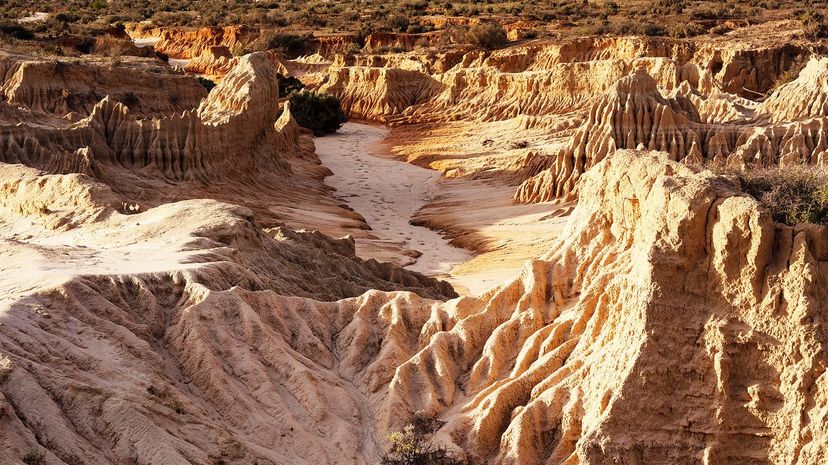
The Mungo Woman, as she has come to be known, was discovered in 1969, and is believed to be over 42,000 years old! Sometime later, a Mungo Man was found, though no relation exists between the two, as the man is thought to have been buried roughly 50 years ago.
Advertisement
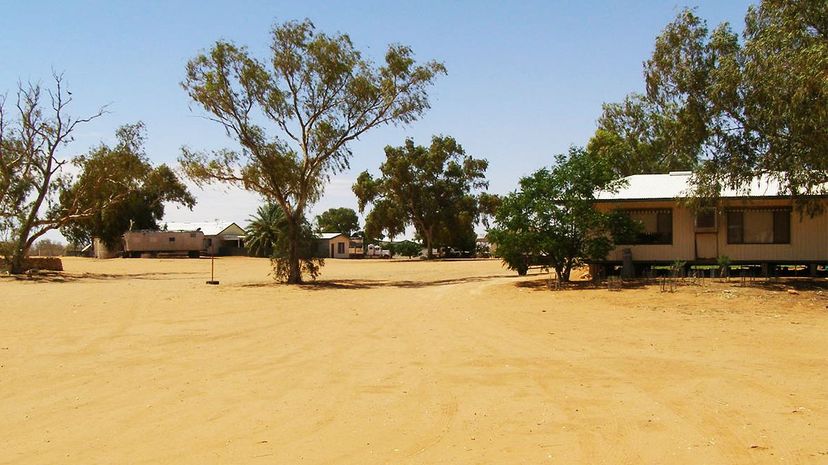
Anna Creek Station is so massive that it's over six times larger than King's Ranch in Texas and even bigger than Israel and Belgium. In a good season, the Station runs about 17,00 animals. Because of dingo attacks, the Station stopped housing sheep and switched to cattle.
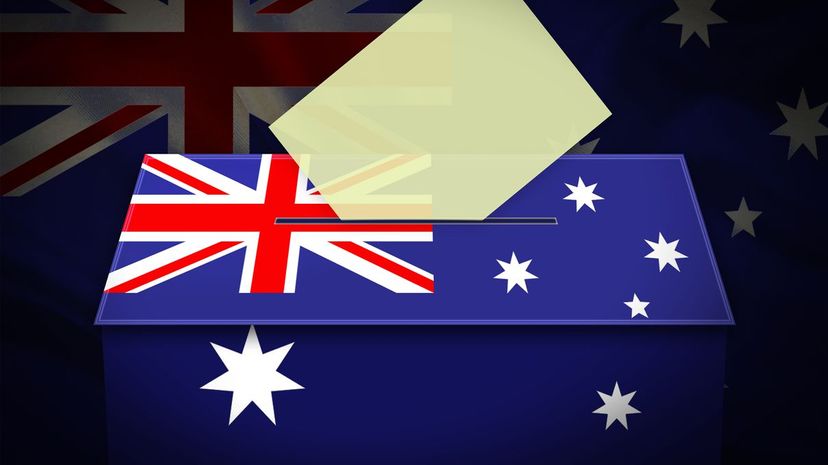
Victoria used to be credited as the birthplace of the secret ballot box. However, after the Tasmanian Electoral Act of 1856 was discovered, credit was appropriately given to Tasmania.